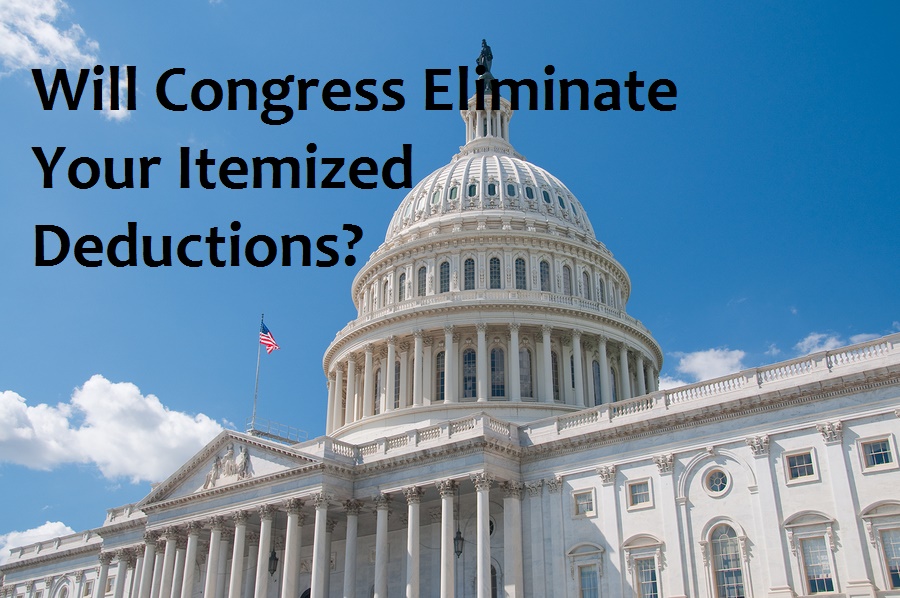
The House and Senate Tax Plans call for eliminating many current tax deductions like state and local income taxes.
Is 2017 your last chance to itemize your deductions? It’s possible. The House and the Senate both have tax plans out and they both look like many things that we currently itemize will be on the chopping block for 2018.
That’s not all bad, the trade-off will be a larger standard deduction and for many people, lower tax brackets. This is not law yet, but it is looking likely something will pass.
Normally, I don’t like to do tax planning based upon speculation. But here’s my opinion–you know that you may claim itemized deductions for 2017. You don’t know if you can claim them for 2018. It seems to me, that it makes sense to stack as many of your deductible expenses on your 2017 return as you can so you won’t lose them if the law changes.
So what’s at stake here? Currently, the new tax proposals would eliminate the deductions for medical expenses, state and local income taxes, real estate taxes, and employee business expenses. (The current plan keeps the charitable donation and the mortgage interest deduction.)
So what does that mean? How would you “stack” your deduction? Let’s use state and local income taxes for an example. If you make estimated tax payments, your fourth quarter payment isn’t due until January 15th. That payment gets applied to your 2017 state tax return as tax paid, but if you pay the estimated payment on January 15th, you can’t claim it as a deduction on your federal return until you file your 2018 tax return. By making your estimated tax payment by December 31st, you move that deduction up to your 2017 federal 1040 return.
I live in St Louis and many of my clients have to pay City of St Louis income taxes. Almost everybody pays those taxes in April, when they file their tax return and then we claim the deduction on the next year’s taxes. But, you can actually make an estimated payment for the City of St Louis tax. By paying the tax in advance, you can also move that deduction to 2017 instead of losing it next year. Here’s a link to the City of St Louis Estimated Payment Voucher There are other cities and localities with taxes that this would apply to as well.
So does it really make a difference? Well yes it does! Let’s say your estimated tax payment is $500 and you’re in the 25% tax bracket. That would be a tax savings of $125. Now before, it would have been save $125 now, or $125 later – but if the GOP plan gets passed, there is no $125 later.
Medical expenses are another potential item on the chopping block. If you have enough medical expenses to itemize on your return, it might make sense to pay for any additional procedures, or buy your glasses, or refill prescriptions before the year ends.
If you claim employee business expenses (that includes job hunting costs) and you’re trying to decide if you should make a purchase now or later, it might be a good time to buy now so you can put it on your 2017 taxes.
And don’t forget to pay your real estate and personal property taxes before the end of the year if you want to claim them on this year’s taxes. Remember, you can only claim the deduction in the year you actually paid the tax!
I’ve got one important caveat here: if you have to pay the Alternative Minimum Tax (AMT) – moving up tax payments might not help you at all because with AMT you don’t get the use the state income tax deduction or the deduction for employee business expenses. If you’re a high income earner, you might want to run the numbers to see if you’ll actually benefit from moving any tax deductions up or not.
So like I said, the current House and Senate tax bills are not law yet. But given the political climate, it’s highly likely that it will pass and I’d hate to see you lose out on a deduction that you could easily be claiming. But even if it the new tax bill doesn’t pass, you’re just getting the tax benefit now rather than later.
